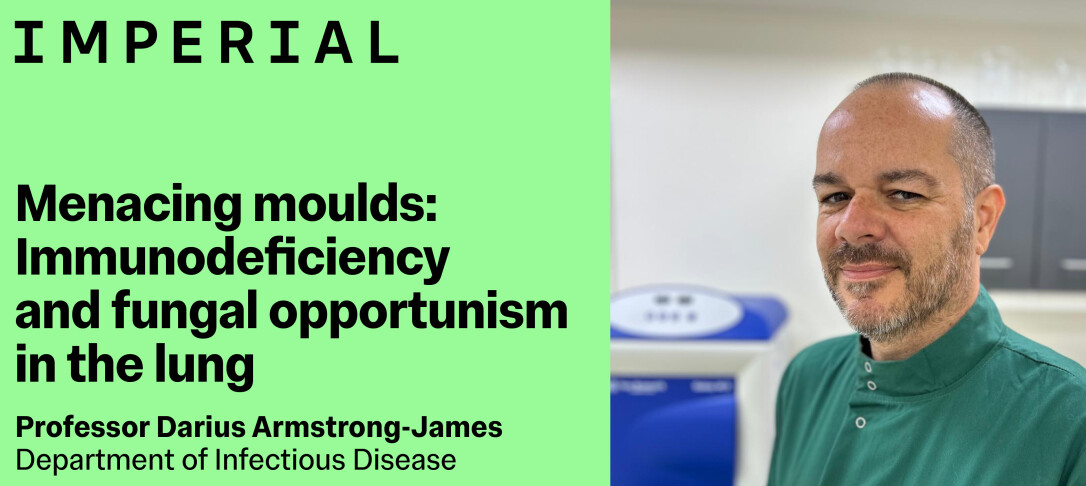
Join us for Professor Darius Armstrong-James’ Imperial Inaugural online or in person.
There is no need to register to attend so please be sure to use the add to calendar button.
We look forward to seeing you on Wednesday 6 November!
Summary
Fungi are metabolic powerhouses of the natural world that underpin the carbon and nitrogen cycles through underground mycelial networks. Yet a small minority of the 3.8 million fungal species are thermophiles, and able to cause deadly and opportunistic human fungal diseases, mainly in individuals with impaired immune systems or chronic lung diseases. Amongst these, Aspergillus fumigatus, a common green mould, is illustrious as the premier human fungal pathogen. It is ubiquitous in the air, an ascomycete saprophyte with a major role in the breakdown of organic matter. It has 3 micron spores that are an ideal size for both dispersal in the air as well as penetration into the terminal airways of the human lung, 100-1000 of which we inhale on a daily basis.
Considering the remarkable array of immune effectors required for host protection to Aspergillus fumigatus, it is an opportunistic and lethal pathogen in the context of respiratory or systemic immune dysfunction. Consequently, recent estimates suggest around 2 million deaths from aspergillosis annually, due to a remarkable spectrum of fungal disease ranging from severe fungal allergy to hyperacute angioinvasive disease. Understanding the underlying mechanisms that lead to pulmonary aspergillosis in the clinical arena remains a notably underexplored area of medicine, despite the unacceptable mortality, diagnostic complexities and lack of therapeutics available, and is central to improving outcomes from this neglected fungal infection.
Biography
Darius Armstrong-James is Clinical Professor of Infectious Diseases and Medical Mycology in the Department of Infectious Disease at Imperial College London, focussing on the pathogenesis of pulmonary aspergillosis. In his inaugural lecture, he will explore the complex immunological mechanisms that underpin the remarkable spectrum, of pulmonary aspergillosis encountered in the clinical arena, ranging from transplant immunity to asthma and cystic fibrosis.


